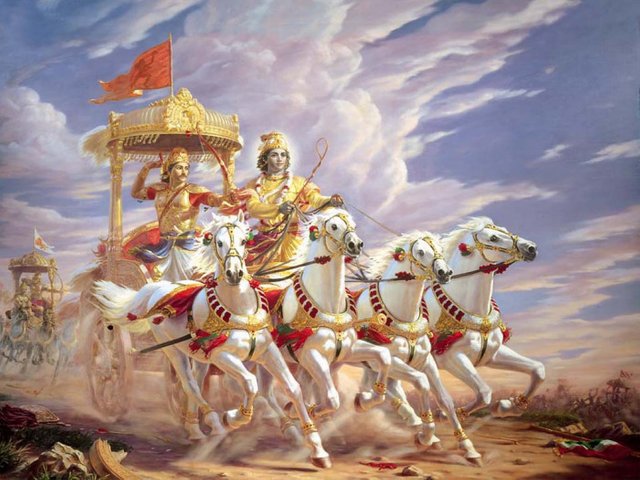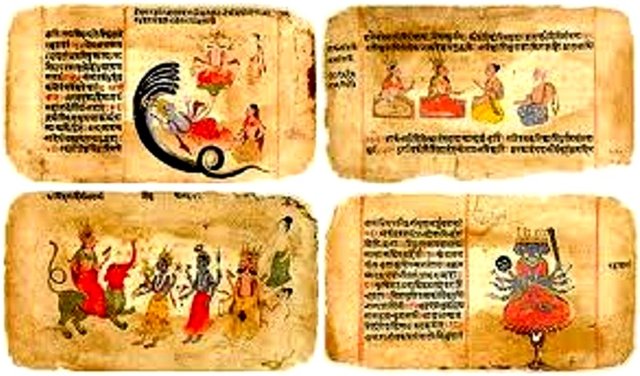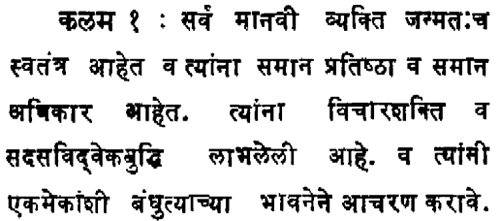The Aryans and Its Origin

Image Source
The word arya in Sanskrit signifies 'free-born', or 'of noble character', or an individual belongs in the three higher castes. The word changed its importance through centuries. Despite the fact that it was utilized as a part of later days as what might be called the formal term of regard 'Sir', it assigned some special tribes as an ethnic group at the earliest stage. Most histories of India start with these ancient Aryans. A few writers still keep up that the Indus individuals probably been Aryans, from the partiality that each pinnacle of Indian cultural accomplishment more likely than not been Aryan.
The repulsive racial ramifications given to Aryan by the late Nazi regime and its official philosophy has expanded the perplexity. There is, naturally, some uncertainty with reference to whether there were really any Aryans whatsoever, and if so what kind of individuals they may have been. The exceptional Aryan component, the one characteristic that legitimizes the name for a vast group of individuals, is a typical family of languages. These critical languages spread right over the Eurasian continent.
Sanskrit, Latin, Greek were the classical Aryan languages. From Latin built up the Roman language group in southern Europe. What's more, the Teutonic the Slavic are likewise sub-groups of the Aryan linguistic group. This is demonstrated by correlation of words for a wide range of objects as against similar terms in non-Aryan languages. Finnish, Hungarian, and Basque in Europe don't have a place with the Aryan languages.
Hebrew and Arabic, however they might be gotten from ancient cultures backpedaling to Sumeria, are Semitic languages, not Aryan. A third impressive non-Aryan set is the Sino-Mongolian, which covers Chinese, Japanese, Tibetan, Mongolian, and numerous others; this group is culturally and historically most imperative, however not for India in that capacity. The Indo Aryan languages are plunged from Sanskrit. The earlier dialects hence inferred were Pali, called likewise Magadhi from being talked in Magadha, and different others generically called Prakrits.

Image Source
From them came the modern Hindi, Panjabi, Bengali, Maiithi, and so on. Be that as it may, there is a significant and culturally critical group of non-Aryan dialects in India of which the Dravidian languages incorporate Tamil, Telugu, Kanarese, Malaya lam, and Tulu; other than these, there are the various yet small tribal idioms which disclose to us an extraordinary arrangement about the primitive stages of Indian speech. They were sometimes grouped together as 'Austric', yet the term is presently perceived as pointless, in perspective of the contrasts between Mundari, Oraon, Toda, and so on.
Does the community of language or a typical cause for the group of languages legitimize the conclusion that there was an Aryan race or an Aryan people? It is hard to trust that blond Scandinavians and dark Bengalis have a place with a similar race, however inexactly characterized the term race might be. Some great European linguists in this way finished up about a century ago that it was as ludicrous to discuss an Aryan race starting at a 'brachycephalic grammar.
Aryan was to be taken as a linguistic term, with no reference to ethnic unity. For all that, there actually were individuals in times long past who called themselves Aryans and were called Aryans by others. The Achaemenid emperor Darius I talks about himself as 'an Achaemenid, Persian, child of a Persian, an Aryan of Aryan drop' in his engravings. Along these lines the Aryans were previously a historic collection of human beings including both the Achaemenid family and the Persian tribe.
The oldest Indian records, the sacrosanct Vedas, talk about the Aryans as the general population who adored the gods loved in those Vedas. By backpedaling step by step from dated engravings and records, it is conceivable to organize all Indian composed material, including the Vedas, in some kind of sequential order. The later books allude to or copy the earlier. Antiquities of language demonstrate need in time.

Image Source
Along these lines, the Rigveda ends up being the first, trailed by the Yajurveda, the Sama-veda, and significantly later by the Atharva-veda which thinks more upon witchcraft. A sensible figure is that most of the Rigveda was readied, or if nothing else alludes to occasions that occurred, around 1500-1200 B.C., in the Panjab. Be that as it may, the Aryans of the Vedas, much the same as different Aryans outside India, battled each different as consistently as they combat with non-Aryans and pre-Aryans.
So it is sensible to presume that lone a portion of the general population who spoke Aryan dialects called themselves Aryans. There were Aryan contingents in the army of Xerxes, child of Darius, and it is realized that the Medes who went before the Persians in the past bore the name 'Aryans', Iran is gotten from aryanam, nation of the Aryans. In spite of the fact that Greeks, Persians, and the Indians of the Panjab spoke Aryan languages, Alexander's contemporary historians utilized 'Aryan' to allude just to special tribes bearing that name, settled on the right bank of the Indus at the time.
What sort of individuals were the original speakers of the primitive Aryan language? As pointed out some time recently, primitive languages have isolate terms for each sort of beast, bird, plant, and fowl instead of generic words like tree, fish, animal, and so on. Philologists have looked at the normal root words for tree, for instance, in numerous Aryan languages, precluding the entirely local words. The original Aryan tree at that point appears to have been the birch, which develops in northern Europe and along the Himalayas, however not in hotter atmospheres.
The fish was evidently the salmon. This sort of investigation can be broadened. The general dispersion of plants, wild animals, birds, and fish over the world's surface is genuinely very much settled and known. Some allowance must be made for local assortments that human beings may have conveyed starting with one place then onto the next. For instance, tea came in historical times from China alongside the word for tea.

Image Source
We can't infer that tea was an Aryan word or drink, or that Chinese is an Aryan language, or that China was the Aryan country. Wiping out such ambiguities, the conclusion is that the original Aryans knew about and most likely originated in the northern districts of Eurasia.
Llinguistic examination is of constrained range and esteem. The Aryan connection terminology is startlingly uniform. Father, mother, brother, father-in-law, widow, and so on., are named by fundamentally the same as words in the languages said. We may infer that the original social association was the same and that the general population really exist. In the meantime, however there is a typical Aryan word for 'foot', there is none for 'hand'.
The word 'daughter' can, through Sanskrit, be given the signifying 'she who milks'; and a similar word for daughter is far reaching in the Aryan languages. This drove some European researchers to develop a beguiling picture of Aryan household life. Tragically, there is no normal word for 'milk'. There are normal words for 'cow' and 'horse' in the older Aryan languages, so we know the animals that framed the pillar of their economy; yet the strategy can't be conveyed too far without crazy conclusions. It is to be utilized just when nothing else offers.

Image Source

References:
http://indiafacts.org
http://www.ancient-origins.net
https://en.wikipedia.org/wiki/Indo-Aryan_peoples
https://en.wikipedia.org/wiki/Aryan_language
https://en.wikipedia.org/wiki/Indo-Aryan_languages
Great job at explaining what the origin of Aryan comes from. In essence it has no association with an ethnic group, this part I really like from your article. We're just people and we shouldn't associate one as better or worse. If you wrote it without copying works of another, this is truly impressive.
Downvoting a post can decrease pending rewards and make it less visible. Common reasons:
Submit
Glad that you did not lay emphasis on the defunct Aryan Migration/Invasion Theory which was propounded by fake historians to widen the North South divide.
Downvoting a post can decrease pending rewards and make it less visible. Common reasons:
Submit
That's interesting. Can you possibly give sources on that, I'd like to read it.
Downvoting a post can decrease pending rewards and make it less visible. Common reasons:
Submit